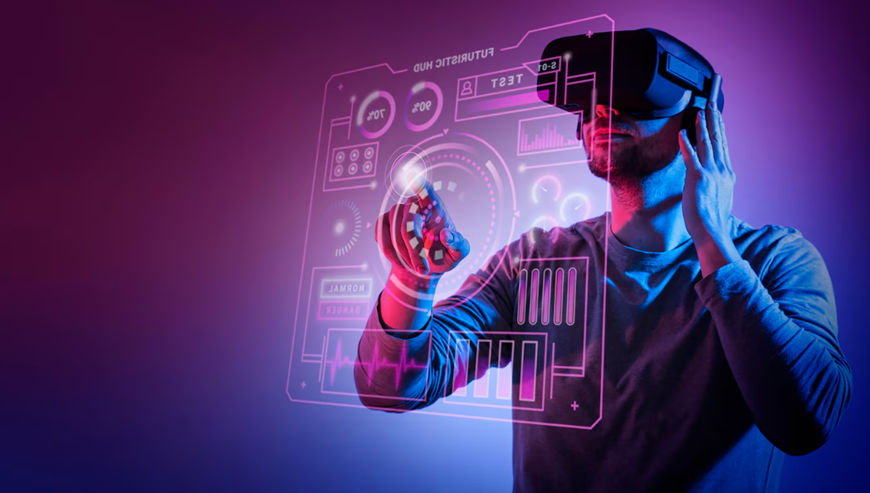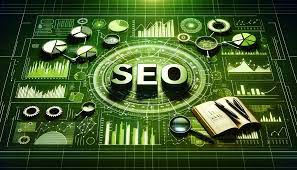Technology has become the cornerstone of modern civilization, influencing nearly every aspect of human life. From communication and transportation to healthcare and education, technology’s impact is profound and undeniable. Its rapid advancement continues to push the boundaries of what is possible, transforming the way we live, work, and interact with the world around us.
The Digital Revolution
The digital revolution has been one of the most significant technological milestones in human history. The advent of computers and the internet has ushered in an era of unprecedented connectivity and information sharing. Today, billions of people around the globe are connected through the internet, accessing information, conducting business, and engaging in social activities at the click of a button.
Smartphones, a product of this revolution, have become indispensable tools in our daily lives. These pocket-sized devices combine the functions of communication, entertainment, and productivity, empowering individuals to stay connected and informed. With advancements in artificial intelligence (AI) and machine learning, smartphones have become smarter, offering personalized experiences and serving as virtual assistants.
Transforming Industries
Technology has revolutionized industries across the board, streamlining processes and improving efficiency. In the healthcare sector, for example, technology has enabled groundbreaking innovations such as telemedicine, robotic surgery, and wearable health devices. These advancements not only enhance patient care but also make healthcare more accessible and affordable.
The education sector has also experienced a significant transformation. Online learning platforms and educational apps have made knowledge more accessible than ever before. Students can now attend virtual classrooms, access resources from anywhere in the world, and learn at their own pace. The COVID-19 pandemic further accelerated the adoption of these technologies, underscoring their importance in ensuring continuity in education.
The Role of Artificial Intelligence
Artificial intelligence stands out as a transformative force in the technological landscape. AI-powered systems are capable of performing tasks that once required human intelligence, such as speech recognition, decision-making, and data analysis. These capabilities are reshaping industries and creating new opportunities.
In business, AI is driving efficiency by automating repetitive tasks, analyzing vast amounts of data, and providing actionable insights. In transportation, autonomous vehicles promise to redefine mobility, enhancing safety and reducing congestion. Even in creative fields, AI is making its mark by generating music, art, and literature.
The Internet of Things (IoT)
The Internet of Things (IoT) is another technological innovation that is revolutionizing daily life. IoT refers to the network of interconnected devices that communicate with each other, collecting and sharing data. Smart homes equipped with IoT devices can automate tasks like adjusting the thermostat, turning off lights, and securing doors, enhancing convenience and energy efficiency.
Beyond the home, IoT has applications in industries such as agriculture, where sensors monitor soil conditions and optimize irrigation. In urban areas, smart cities leverage IoT to improve traffic management, reduce energy consumption, and enhance public services.
Challenges and Ethical Considerations
While technology offers immense benefits, it also presents challenges and ethical dilemmas. Cybersecurity threats, such as hacking and data breaches, pose significant risks to individuals and organizations. As our reliance on technology grows, so does the need for robust security measures to protect sensitive information.
Privacy is another major concern. The widespread collection and use of personal data by tech companies have sparked debates about data ownership and consent. Striking a balance between leveraging data for innovation and respecting individual privacy is a challenge that requires careful consideration.
Moreover, the rapid pace of technological advancement raises questions about job displacement. Automation and AI are transforming the workforce, potentially rendering certain roles obsolete. Preparing for this shift requires investing in education and reskilling programs to equip individuals with the skills needed for emerging industries.
The Future of Technology
The future of technology holds exciting possibilities. Advances in quantum computing, biotechnology, and renewable energy are poised to address some of humanity’s most pressing challenges. Quantum computers, with their unparalleled processing power, could revolutionize fields like cryptography, drug discovery, and climate modeling.
Biotechnology promises breakthroughs in healthcare, including personalized medicine and gene editing. Meanwhile, advancements in renewable energy technologies are driving the transition to a more sustainable future, reducing reliance on fossil fuels and mitigating climate change.
Space exploration is another frontier where technology is making significant strides. Companies like SpaceX are pioneering reusable rocket technology, while ambitious missions aim to explore Mars and beyond. These endeavors not only expand our understanding of the universe but also inspire innovation on Earth.
Conclusion
Technology is a powerful force that continues to shape our world. Its ability to solve problems, enhance efficiency, and improve quality of life is unmatched. However, it is crucial to navigate its challenges responsibly, addressing ethical concerns and ensuring equitable access.
As we move forward, embracing innovation while remaining mindful of its implications will be key to unlocking the full potential of technology. By doing so, we can build a future where technology serves humanity, fostering progress and prosperity for generations to come.












